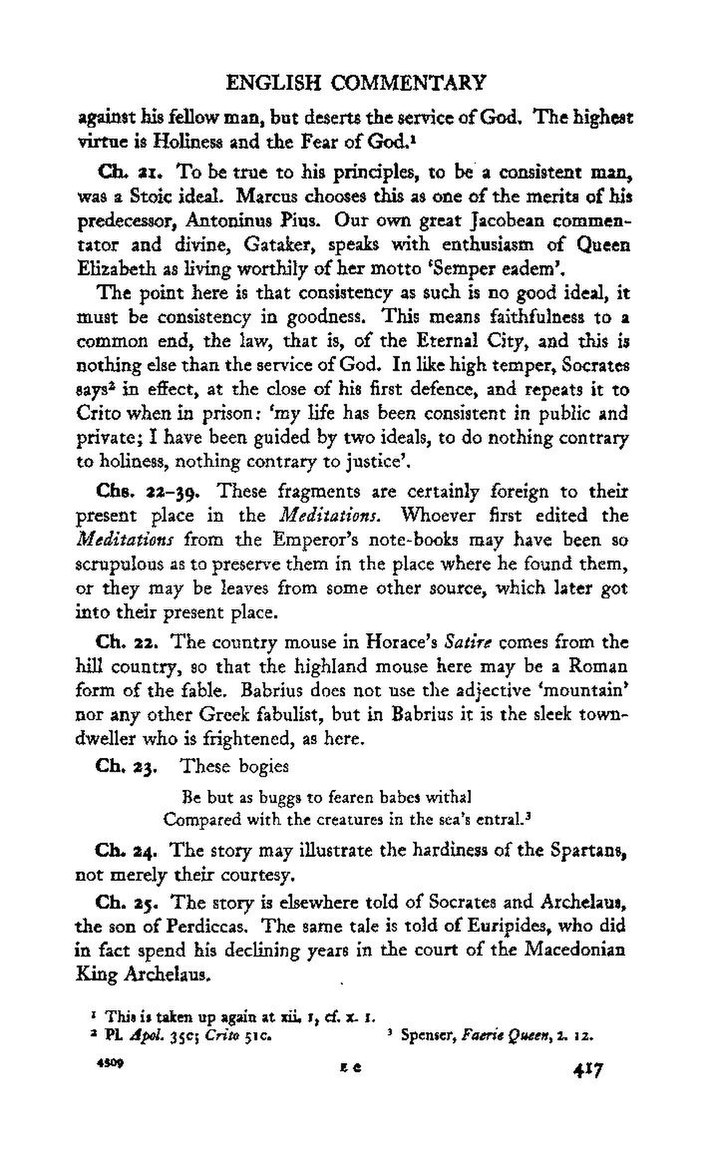ENGLISH COMMENTARY
against his fellow man, but deserts the service of God. The highest virtue is Holiness and the Fear of God.[1]
Ch. 21. To be true to his principles, to be a consistent man, was a Stoic ideal. Marcus chooses this as one of the merits of his predecessor, Antoninus Pius. Our own great Jacobean commentator and divine, Gataker, speaks with enthusiasm of Queen Elizabeth as living worthily of her motto 'Semper eadem'.
The point here is that consistency as such is no good ideal, it must be consistency in goodness. This means faithfulness to a common end, the law, that is, of the Eternal City, and this is nothing else than the service of God. In like high temper, Socrates says[2] in effect, at the close of his first defence, and repeats it to Crito when in prison: 'my life has been consistent in public and private; I have been guided by two ideals, to do nothing contrary to holiness, nothing contrary to justice'.
Chs. 22–39. These fragments are certainly foreign to their present place in the Meditations. Whoever first edited the Meditations from the Emperor's note-books may have been so scrupulous as to preserve them in the place where he found them, or they may be leaves from some other source, which later got into their present place.
Ch. 22. The country mouse in Horace's Satire comes from the hill country, so that the highland mouse here may be a Roman form of the fable. Babrius does not use the adjective 'mountain' nor any other Greek fabulist, but in Babrius it is the sleek town-dweller who is frightened, as here.
Ch. 23. These bogies
Be but as buggs to fearen babes withal
Compared with the creatures in the sea's entral.[3]
Ch. 24. The story may illustrate the hardiness of the Spartans, not merely their courtesy.
Ch. 25. The story is elsewhere told of Socrates and Archelaus, the son of Perdiccas. The same tale is told of Euripides, who did in fact spend his declining years in the court of the Macedonian King Archelaus.
